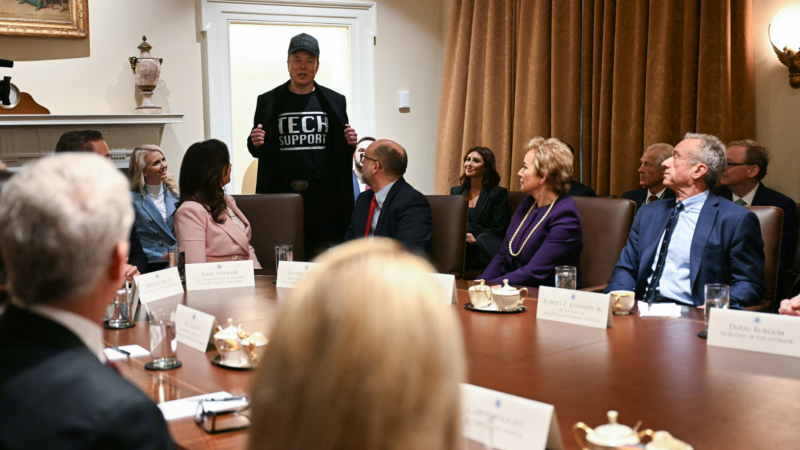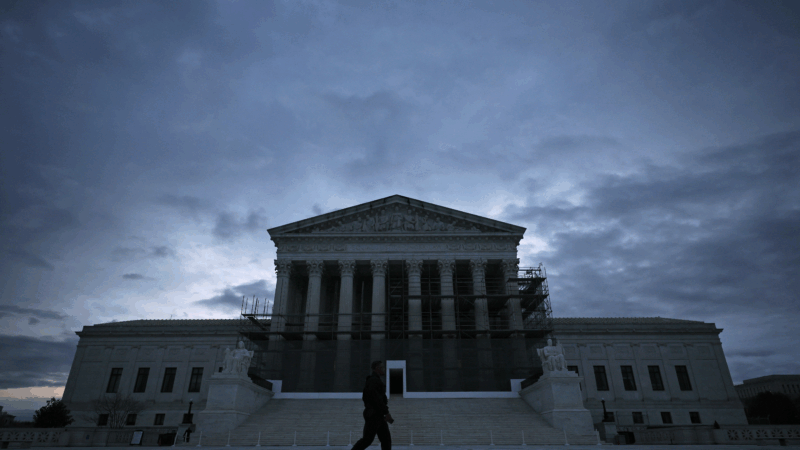A pattern emerges in Elon Musk’s federal shakeup: ‘Break first, ask questions later’
Stability used to be a hallmark of working for the federal government. Since Jan. 20, it’s been quite the opposite.
As President Trump acts on his campaign promise to dismantle government bureaucracy and root out waste and fraud, federal workers have complained of mass chaos and confusion while lawsuits challenging the Trump administration’s moves pile up.
Five weeks in, there’s an emerging pattern in how the administration moves to target federal employees, and it looks something like this:
- Elon Musk, the billionaire adviser to Trump, brings in tactics he’s employed at his private-sector businesses.
- A directive is sent out through the Office of Personnel Management (OPM) that immediately raises the question: Can they do that?
- Federal agencies scramble to provide guidance to employees, resulting in multiple emails often in conflict with one another.
- Facing pushback, OPM then issues further guidance, telling agencies to carry out the directive themselves.
This process occurred with both the “Fork in the Road” resignation offer, which mirrored an offer Musk made to employees at Twitter in 2022, and the “What did you do last week?” email, a question Musk also put to then-Twitter’s CEO before buying the company in 2022.
“It’s been very eerie watching what’s been happening … where he rolls out the same Twitter playbook now with the federal government,” Shannon Liss-Riordan, an attorney who has sued Musk on behalf of Twitter employees, told NPR after the “Fork” offer went out.
Both directives were sent from the email address hr@opm.gov, which didn’t exist before Jan. 20. Lawsuits are challenging whether OPM even has the authority to send such communications.
Meanwhile, Trump has cheered Musk’s work and encouraged him to go further.
“Elon is doing a great job, but I would like to see him get more aggressive,” Trump wrote on his social media site Truth Social.
The president’s words ignore the fact that Musk himself has no authority to tell federal agencies what to do.
In a court filing earlier this month, the White House stated that Musk is a “Senior Advisor to the President,” and like other senior advisers, “has no actual or formal authority to make government decisions himself.”
Still, that doesn’t mean Musk — with the ear of the president and a giant megaphone — lacks power.
When Musk posted on his social media site X that federal employees could lose their jobs if they didn’t respond to the “What did you do last week?” email, that threat became part of the narrative, even though the actual email that went to federal employees made no mention of it, and prior OPM guidance stated that responses to mass emails were voluntary.
While some agency leaders swiftly issued guidance telling their employees not to respond, others including at the Treasury Department and the Environmental Protection Agency expressly instructed their employees to respond before the deadline, reinforcing Musk’s stance that a response was required.
Then late Monday, OPM issued new guidance formalizing the transfer of responsibility for the “What did you do last week?” request from OPM and Musk to the agencies, telling agency leaders to collect responses to the email and decide what to do with employees who didn’t respond.
“It is agency leadership’s decision as to what actions are taken,” the memo stated.
Where this playbook — agencies carrying out directives coming from OPM and championed by Musk — might hit a roadblock is in federal court.
Last week, in response to the Trump administration’s mass firings of probationary employees, labor unions sued the Trump administration, claiming that federal agencies themselves had no plans to fire employees but did so only at the direction of OPM.
Their complaint points to a federal statute that states that the head of each executive department “may prescribe regulations for the government of his department, the conduct of its employees, the distribution and performance of its business.”
In other words, the unions argue, OPM has no business telling other agencies how to manage their employees.
“OPM has, in my mind, vastly exceeded not only its authority, but any past precedent for exercising its authority,” says Michelle Bercovici, a partner with the Alden Law Group who filed a different complaint over Trump’s firing of probationary employees. “It’s definitely break first, ask questions later.”
In its opposition brief, the Trump administration denied that it had created a “mass termination program,” only noting that OPM had asked agencies to review probationers based on how their performance was advancing the agencies’ mission. The administration insists that agencies made their own decisions about which employees to terminate and which to keep.
U.S. District Judge William Alsup of the Northern District of California will hear arguments in the unions’ case on Thursday.
Now, unions and attorneys are bracing for far deeper cuts, as Trump moves to the next phase of the dismantling.
Trump’s Feb. 11 executive order directs agencies to prioritize cutting “all offices that perform functions not mandated by statute or other law” through a process called a reduction in force.
That process moved forward a step Wednesday, with OPM and the Office of Management and Budget sending out official guidance to agencies, saying they have until March 13 to develop “Agency Reorganization Plans.”
Those plans could mean tens of thousands or even hundreds of thousands of federal employees lose their jobs.
Have information you want to share about ongoing changes across the federal government? NPR’s Andrea Hsu can be contacted through encrypted communications on Signal at andreahsu.08.
Trump is leaving the G7 early to focus on the Middle East
Trump will leave Canada Monday night after having dinner with the G7 leaders, his press secretary Karoline Leavitt, said. He had originally been slated to leave Canada on Tuesday evening.
What does Juneteenth mean to you? We want to hear your story
NPR wants to know how you feel about celebrating Juneteenth at this moment in history
Supreme Court faces new headwinds with roughly two weeks left in the term
Some 20 cases remain to be decided—about a third of the total argued cases--many of them the most important of the term. But the shadow docket — with its own list of cases — looms over the other opinions.
Israel claims control of Iran’s skies, but Tehran is managing to hit back
Israel says it has largely knocked out Iran's air defenses. In contrast, Israel still has strong air defenses in place, though some Iranian missiles are breaking through with lethal results.
Trump Administration could impose a travel ban on dozens more countries
A State Department memo says dozens of countries have until Wednesday morning to come up with a plan to address some U.S. concerns, or face travel restrictions.
The darter fish and the data center
A newly identified species is already in danger of extinction. A proposed massive data center in Bessemer would “nuke” its habitat, scientists say.







